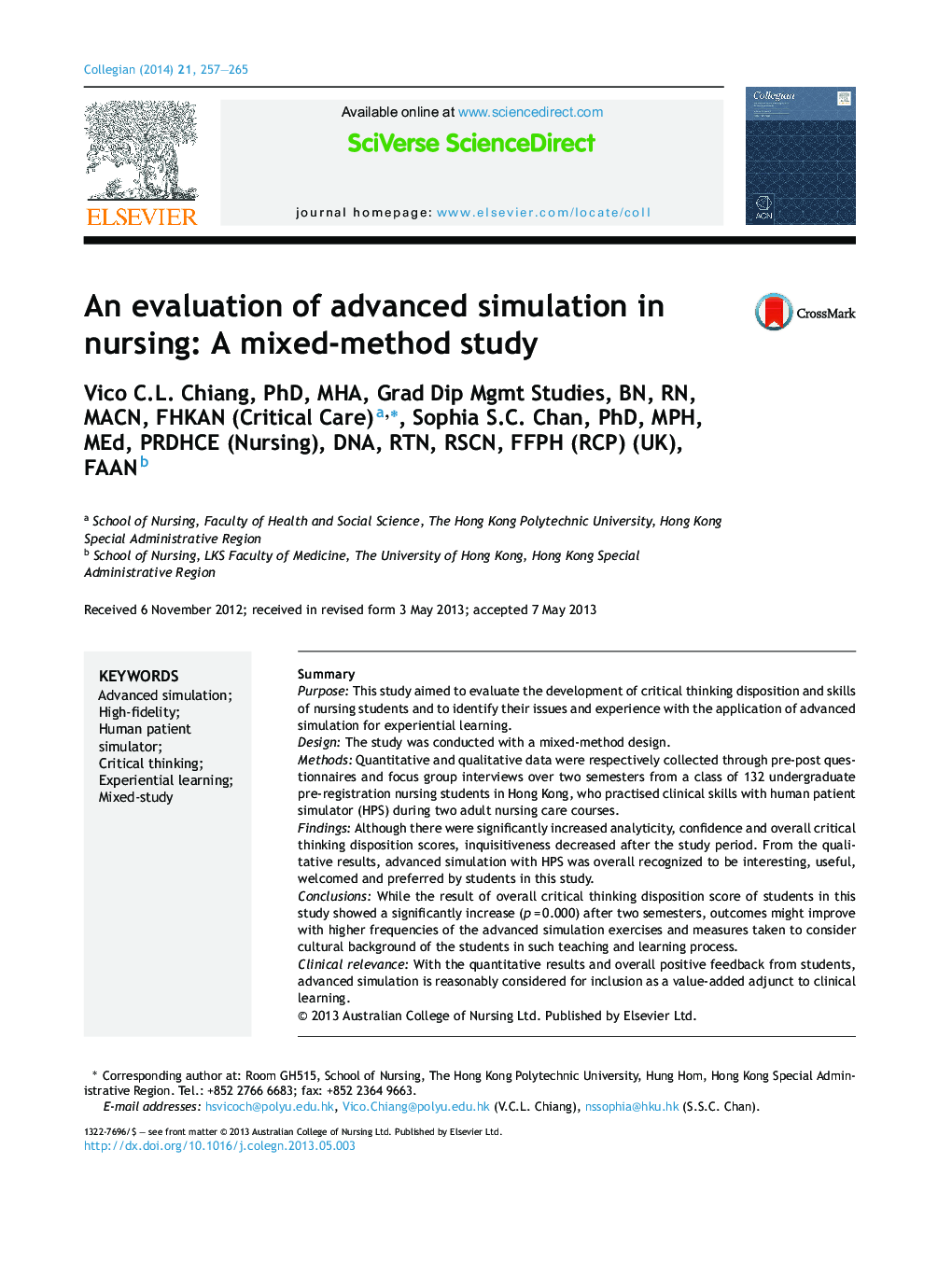| Article ID | Journal | Published Year | Pages | File Type |
|---|---|---|---|---|
| 2646812 | Collegian | 2014 | 9 Pages |
SummaryPurposeThis study aimed to evaluate the development of critical thinking disposition and skills of nursing students and to identify their issues and experience with the application of advanced simulation for experiential learning.DesignThe study was conducted with a mixed-method design.MethodsQuantitative and qualitative data were respectively collected through pre-post questionnaires and focus group interviews over two semesters from a class of 132 undergraduate pre-registration nursing students in Hong Kong, who practised clinical skills with human patient simulator (HPS) during two adult nursing care courses.FindingsAlthough there were significantly increased analyticity, confidence and overall critical thinking disposition scores, inquisitiveness decreased after the study period. From the qualitative results, advanced simulation with HPS was overall recognized to be interesting, useful, welcomed and preferred by students in this study.ConclusionsWhile the result of overall critical thinking disposition score of students in this study showed a significantly increase (p = 0.000) after two semesters, outcomes might improve with higher frequencies of the advanced simulation exercises and measures taken to consider cultural background of the students in such teaching and learning process.Clinical relevanceWith the quantitative results and overall positive feedback from students, advanced simulation is reasonably considered for inclusion as a value-added adjunct to clinical learning.
